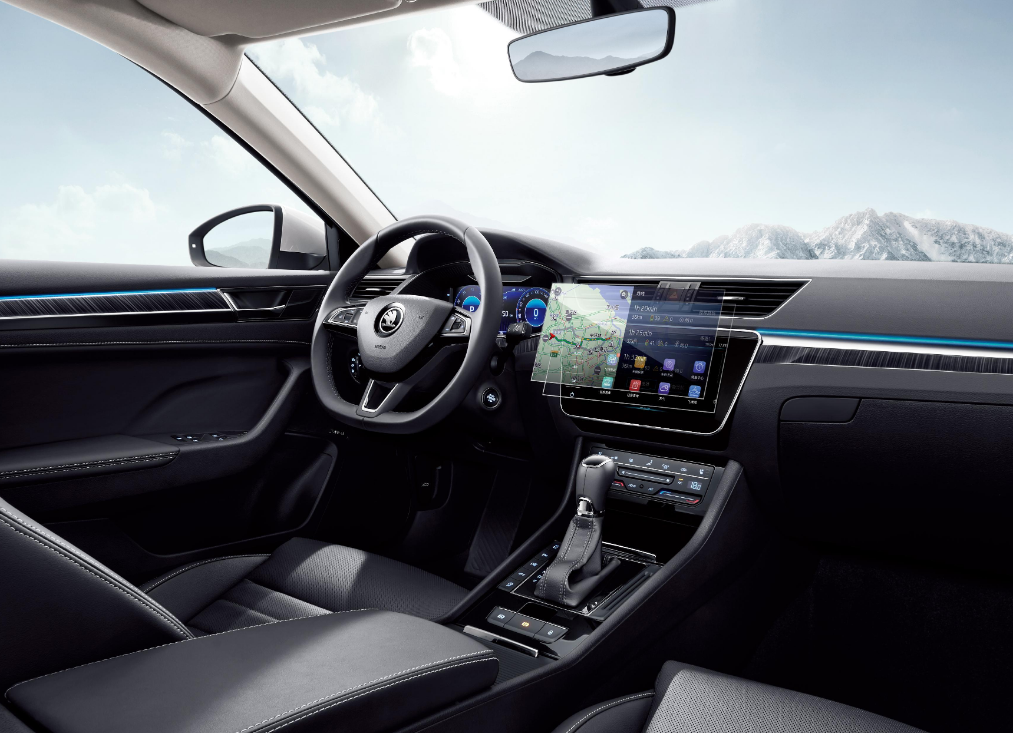
In the highly competitive Chinese automotive market, Skoda is facing a significant challenge. Data shows that Skoda's sales in China have continuously declined for five years since 2019, with only 22,800 vehicles sold in 2023, representing a decrease of 48.9% from its peak. According to data from the Joint Conference on Passenger Vehicle Market Information, cumulative sales of the Skoda brand in China from January to August this year did not exceed ten thousand vehicles.
To reverse the decline, Skoda plans to deepen its cooperation with SAIC Motor Corporation Limited by adopting Roewe's DMH super hybrid system for brand electrification transformation. The model will also draw inspiration from Volkswagen and Xpeng Motors' collaboration.
VW has been marginalization
As one of the world's four oldest car manufacturers, Skoda began localizing in China in 2005. Thanks to sharing platforms and core components with SAIC Volkswagen, Skoda has become the preferred choice for affordable Volkswagen vehicles.
However, due to fierce competition in the Chinese car market and Volkswagen's continuous price reductions, Skoda's survival has been squeezed. In the first half of this year, Skoda sold 448,600 vehicles globally, a 3.8% increase compared to last year; but in China, sales dropped by 44.3%, with only 7,100 cars sold. The once-popular Skoda Octavia experienced a significant decline in sales during several consecutive months.


Based on Skoda's sales changes in China, rumors emerged in 2022 about the possibility of Skoda withdrawing from the Chinese market. At that time, Skoda China responded by stating that they continuously evaluate their position in international markets and adjust strategies to adapt to local developments.
The recent cooperation with SAIC is a specific measure for Skoda's implementation of their statement, but both companies have declined to comment on the rumors. However, Yu Jingmin, Executive Deputy General Manager of SAIC Passenger Vehicle, previously stated that Skoda had contacted them multiple times regarding deep cooperation possibilities.

The relevant people who close to Skoda told Car Insight, Volkswagen is planning a major operation involving the company, with significant developments expected shortly. Skoda and its joint venture partner SAIC Motor have recently researched their market position and strategic direction in China, leading to adjustments being made to Skoda's domestic market strategy.
The market in the future is still uncertain
In the current market situation, Skoda's choice may be crucial for its continued operation in China amidst increasing competition and the common challenge of traditional car brands transforming.
Skoda is collaborating with SAIC Roewe to utilize its hybrid technology and cater to the demand of Chinese consumers for new energy products. However, as Volkswagen, its parent brand, has already introduced multiple electric vehicles and gained a certain market share, it remains uncertain whether Skoda can establish a presence in the market.
It is worth mentioning that this collaboration will cover not only pure electric vehicles but also SAIC's advanced plug-in hybrid DMH vehicle platform. According to the released model information, the Roewe D5X DMH hybrid system can achieve a fuel consumption as low as 4.62L/100km, with a pure electric range of 135km and a comprehensive range of 1300km (CLTC test conditions).
According to data from the China Association of Automobile Manufacturers, the penetration rate of new energy vehicles in China reached 43.8% in July. Chen Shihua, Deputy Secretary-General of the association, also stated that this year's growth in China's new energy vehicle market mainly comes from plug-in hybrid models. In July, while pure electric vehicles saw a sales growth rate of 2.6%, plug-in hybrids experienced a significantly higher growth rate at 80.7%, 31 times higher than that of pure electric vehicles.

Apart from China, Skoda also has a 'B plan': the brand's focus in Asia is now shifting to Southeast Asia. Skoda has recently entered Vietnam and opened its first dealership there, to achieve sales of 40,000 vehicles in the local market by 2030.
Skoda board member Martin Jain also mentioned in an interview that Skoda is considering expanding its operations to Malaysia, Thailand, or Indonesia after Vietnam. Thailand and Indonesia are the largest automotive markets in Southeast Asia. Skoda also plans to enter emerging markets like the Middle East or Eastern Europe, while introducing its all-electric Enyaq series models in India. 
 The success of the Skoda and SAIC Motor collaboration relies on consumer experience and feedback. Whether consumers will be willing to pay for new plug-in hybrid models launched by Skoda remains uncertain. Chinese domestic brands have already captured over 60% of the automobile market as of August this year, leaving limited space for joint venture car companies.
The success of the Skoda and SAIC Motor collaboration relies on consumer experience and feedback. Whether consumers will be willing to pay for new plug-in hybrid models launched by Skoda remains uncertain. Chinese domestic brands have already captured over 60% of the automobile market as of August this year, leaving limited space for joint venture car companies.
However, industry insiders suggest that the SAIC-Skoda collaboration may serve as a 'trial' for Volkswagen Group. Currently, Volkswagen Group has partnerships with local brands like VW-Xpeng and Audi-SAIC in China, and cooperating with Roewe will be another attempt to explore various domestic avenues before determining the most advantageous partnership scheme for Volkswagen Group. Whether Skoda can leverage its collaboration with SAIC Roewe to succeed in the new energy vehicle market will also be a focal point of industry attention.
Translator:Wei Xiong

 Room 1104,Block B,JingBan Building,6 Middle Beisanhuan Road,Xicheng District,Beijing
Room 1104,Block B,JingBan Building,6 Middle Beisanhuan Road,Xicheng District,Beijing
 (8610)62383600
(8610)62383600
 quanqixiang@carresearch.cn
quanqixiang@carresearch.cn
 京公网安备:11010202007638号|京ICP备17032593号-2|Report illegal and bad information:010-65993545-8019 jubao@carresearch.com
京公网安备:11010202007638号|京ICP备17032593号-2|Report illegal and bad information:010-65993545-8019 jubao@carresearch.com
Legal support:Beijing Yingke Law Firm|All rights reserved, DO NOT reproduce without permission